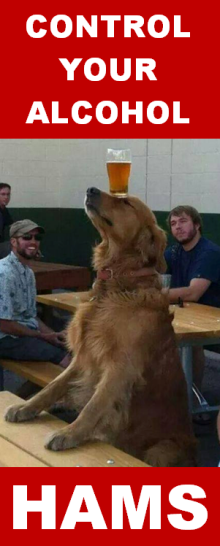Research by Dr. David Sinclair in Finland suggests that naltrexone is most effective if taken one hour before one intends to drink alcohol. This is known as the Sinclair method. The Sinclair method says that naltrexone should only be taken before drinking and not otherwise. This differs from the way in which naltrexone is prescribed in the US where the FDA recommends that patients take naltrexone daily and abstain from alcohol entirely.
CAUTION: Naltrexone should be avoided by people suffering from liver damage. Nausea is the most commonly reported side effect of naltrexone--10% of subjects tested reported nausea. Naltrexone is generally considered safe for the liver at recommended dosages but overdosage can cause liver damage. It is recommended that patients taking naltrexone wear a medic alert bracelet because naltrexone renders narcotic painkillers such as morphine completely ineffective. For full FDA cautions on naltrexone please click here.
For more information please see the following HAMS articles about naltrexone.
Naltrexone and the Sinclair method of pharmacological extinction
Alcohol, Naltrexone, and the Magic of Pharmacological Extinction
The Efficacy of Antabuse, Campral, and Naltrexone in Treating Alcohol Use Disorders
For more information about alcohol and naltrexone there is Roy Eskapa's book The Cure for Alcoholism: Drink Your Way Sober Without Willpower, Abstinence or Discomfort
Please also visit our web page: Medications for Abstinence or Moderate Drinking
REFERENCES:
Anton RF et al. (2006). Combined pharmacotherapies and behavioral interventions for alcohol dependence: the COMBINE study: a randomized controlled trial. JAMA. May 3;295(17):2003-17.
PubMed Abstract
Free Full Text
Garbutt JC (2009). The state of pharmacotherapy for the treatment of alcohol dependence.
Journal of Substance Abuse Treatment. Jan;36(1):S15-23.
PubMed Abstract
Heinälä P, Alho H, Kiianmaa K, Lönnqvist J, Kuoppasalmi K, Sinclair JD. (2001). Targeted use of naltrexone without prior detoxification in the treatment of alcohol dependence: a factorial double-blind, placebo-controlled trial. Journal of Clinical Psychopharmacology. Jun;21(3):287-92.
PubMed Abstract
Sinclair JD. (2001). Evidence about the use of naltrexone and for different ways of using it in the treatment of alcoholism. Alcohol and Alcoholism. Jan-Feb;36(1):2-10.
PubMed Abstract



